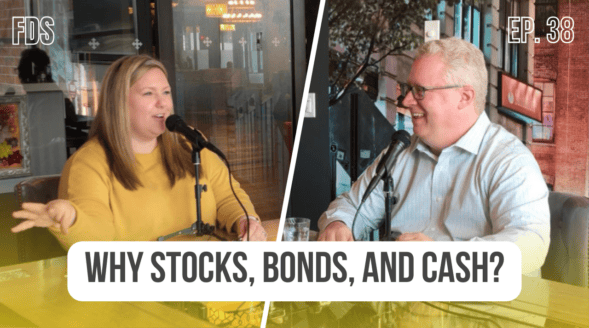Are bonds always worth holding?
by Financial Design Studio, Inc. / February 28, 2018Are bonds always worth holding?
The market is beginning to digest the news of yesterday’s steel and aluminum tariff talk. There are a variety of factors to consider both short and long term, domestically, and globally regarding whether tariffs are a good choice at this time, which we’ll save for another day. It seems initially that most respected analysts and economists feel the reaction was a bit overdone by the market. However, we feel there could be more to come and for that we have to wait to digest. Thursday’s volatility from tariffs overshadowed the volatility Tuesday that was actually just calming from interest rate discussions earlier in the week. In light of the volatility over the past month the question of portfolio diversification becomes ever more important.
Tuesday’s movement in the stock markets was mostly reaction from hearing our new Federal Reserve Chair, Jerome Powell speak about rising interest rates. Let’s dig in to understand how this affects you. Traditionally, people consider bonds to be a safe investment that will decrease the risk of an overall portfolio. If your portfolio is moving to be more conservative toward retirement you may consider bonds as an investment to add.
How do interest rates affect bonds?
As an investor, rising interest rates generally cause the price of a bond to fall. There are two ways that people commonly invest in bonds, through a bond fund or buying individual bonds.
Bond Funds:
Many people have a bond fund available to them as an investment option in their retirement account, so they allocate a certain percentage to this for diversification. The manager of the bond fund then decides what bonds to buy within the fund. As rates rise the manager of the fund will likely choose to purchase shorter term bonds. For example they may purchase a 3-year bond versus a 7-year or 10-year bond. The length of years refers to how long you have to hold the bond to receive your face value back. This allows them to buy new bonds as the shorter term bonds mature so they are able to get higher coupon payments from the rising rates.
If they hold onto the longer term bonds they would be missing out on the higher interest rates that can be achieved as rates rise. Which leads us to an example for buying individual bonds.
Individual Bonds:
As an investor with funds outside of your retirement accounts you could buy individual bonds that, if held to maturity, you receive your face value back at the end of the term. The issue comes if you try to sell your bond as rates are rising, before the maturity date. Because the bond you hold has a lower interest rate than what is available on the market (remember new bonds are paying a higher interest rate), you will have to accept a lower price to sell it.
So are there times to avoid bonds?
Even as we’ve just touched on the two ways you can own bonds in your portfolio, the asset class is still something important to hold in order to provide diversification from stocks and other assets. Just like stocks you can search for different types of bonds with shorter durations, emerging markets, or internationally. Bonds are still worth holding in this rising rate environment. You just need to be aware of what bonds you are holding to continue making this asset class valuable in your portfolio.
We are happy to answer questions like these and any others to help you on your investing journey! Thank you for following along with us.
VIEW NEXT
Ready to take the next step?
Schedule a quick call with our financial advisors.



